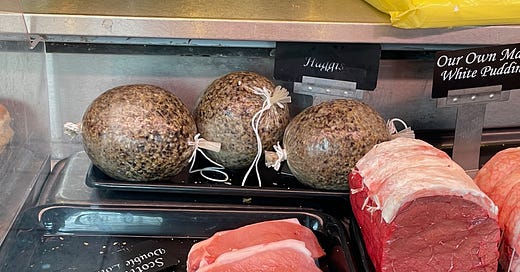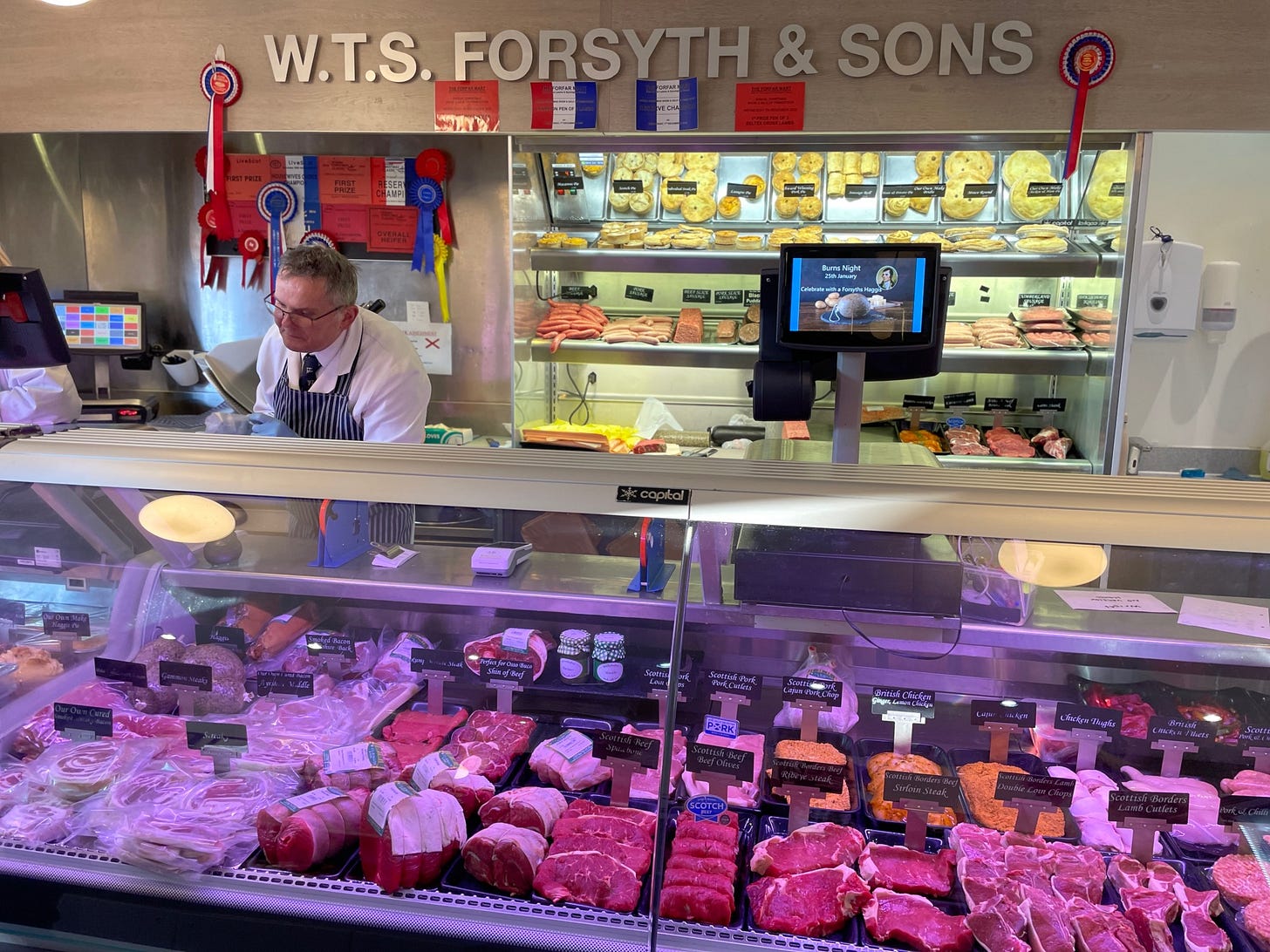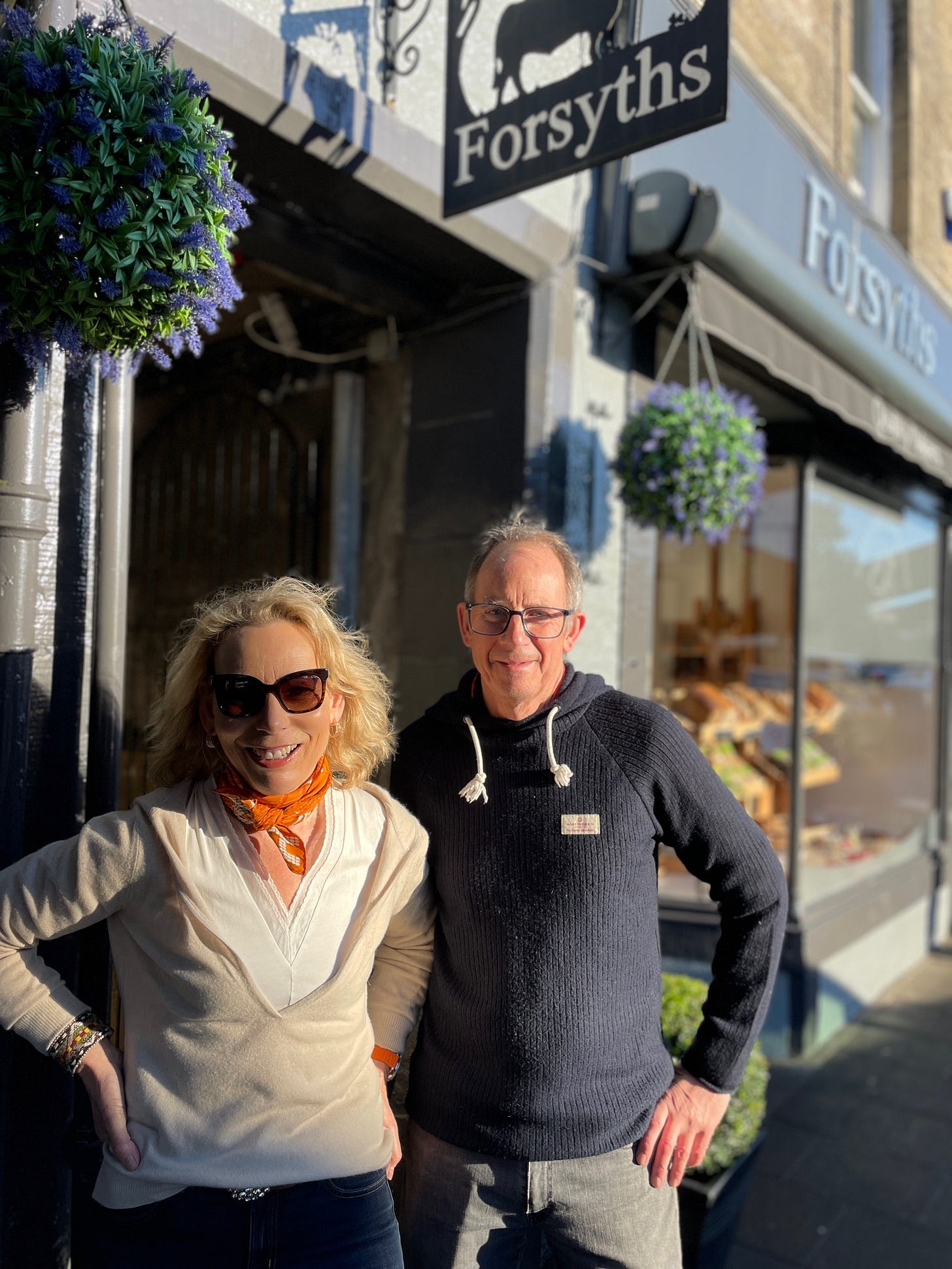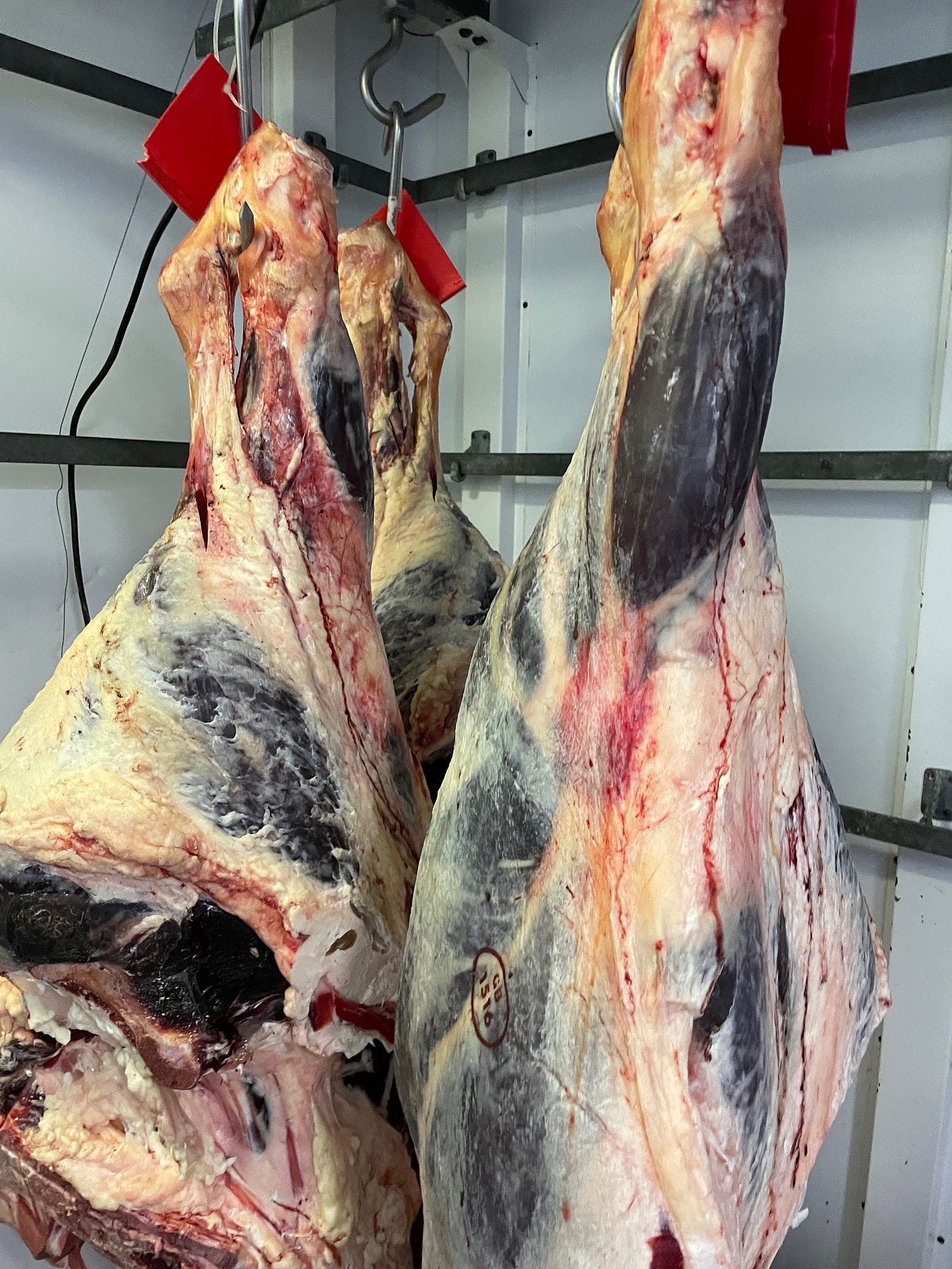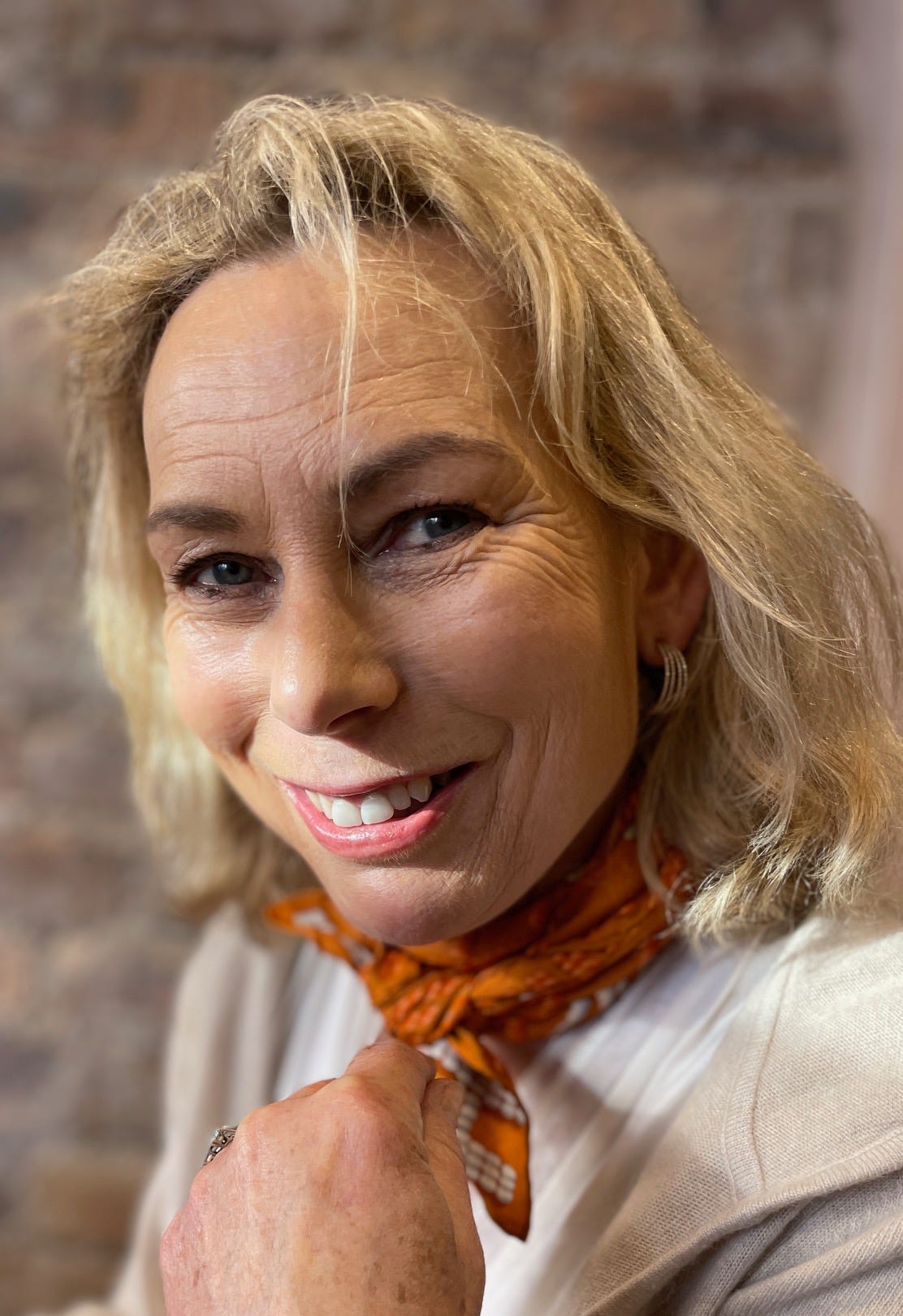Unpacked: Haggis with Forsyths Butcher
Insights into the future of traditional butchers in the Borders
With the third season of the FoodScape launching just a few days before Burns Night, it seemed a perfect opportunity to do an episode on haggis.
Many Borders butchers still make their own from scratch, and shop windows display clutches of the stuffed sheep’s stomachs throughout January, with each claiming to be the best and most authentic. When choosing which butcher to approach for an interview, I really was spoiled for choice. We are lucky that most Borders towns still have traditional butchers, but in making this episode, I learned this is perhaps not something we should take for granted any longer.
I decided to visit Forsyths of Peebles who have been in operation since the 1930s. Louise Forsyth, who runs the business along with husband Mike, met me in their small shopfront where she immediately drew my attention to the counter stocked with neat cuts of meat, pies, ready meals and, of course, haggis. ‘This is exactly what you’d expect from a good, traditional Borders butcher’, she said, and proceeded to tell me exactly which farm each piece of meat had come from.
We spoke over the noise of a constant stream of customers and the phone ringing with haggis orders from Cheltenham and London. It felt thriving and hopeful, but Louise informed me that their shop had been one of several traditional butchers in town, whereas now they were the only one. I later learned that nearby Innerleithen had just lost their butcher as well.
Shops like Forsyths were once amongst the many food outlets at the heart of every high street around the country. While the convenience of supermarkets has proved too strong a competitor for most independent businesses, in turn killing off the kind of agriculture that could service local trade, meat remains the last available food product to be produced here and sold locally at any scale.
I asked Louise why she felt Borderers remain willing to make that extra trip to buy from butchers, when supermarkets purport to offer cheap, traceable meat of a consistent quality.
From her experience running Forsyth’s, Louise believes that Borderers still value the option to buy meat from a business that they trust, and which has a tangible connection to the farms and landscapes they see around them. But despite that loyalty, the future of traditional butchers isn’t a sure thing.
She described her worst nightmare as being forced to buy ‘boxed beef’ of no discernable provenance - something that many butchers’ businesses are being forced to do. As the livestock buyer for Forsyths, she selects each beast directly from farms or the livestock mart at St Boswells, and knows the company transporting the animals to and from the abattoir. The carcass arrives at the shop to be broken down by a team of skilled butchers, and then transformed by the kitchen team who know how to use every cut, fat and scrap to make pies, meals, sausages and haggis. It is a supply chain that requires considerable skill and knowledge at every stage. I met some of her team, including butcher Tim who has worked into his role over 20 years, and Eric who has been making Forsyth’s haggis for 44 years. The knowledge and experience accrued amongst her team is quite astounding, and seems an key ingredient in their success.
But Louise has observed trends in the livestock trade which highlight the fragility of this traditional infrastructure. The inevitable influence of large commercial buyers could upset local supply, making it difficult for traditional businesses like Forsyths to support the kind of team needed to make it work. And if those skills aren’t employed, they’re lost’, says Louise, ‘and you can’t replace them easily, if at all.’
I ended up celebrating with two Burns’ suppers this year, and enjoyed a haggis from Forsyths as well as one from another traditional butcher close to my home. They were both absolutely delicious, and satisfyingly different. Each one was an expression of the unique skills, knowledge and product provenance of their respective businesses, and I couldn’t help feeling it would be a tragedy if in the future the only haggis available in the Borders was one generic commercial brand.
If we want to maintain the food, skills, culture and lifestyle that makes the Borders unique, it is vital we continue to support our local, independent businesses.
If you haven’t already heard the episode on Haggis with Forsyths Butcher, have a listen here.
Paid subscribers can also access the additional interview with Louise Forsyth in which she talks more in depth about the livestock trade and future of traditional butchers.

